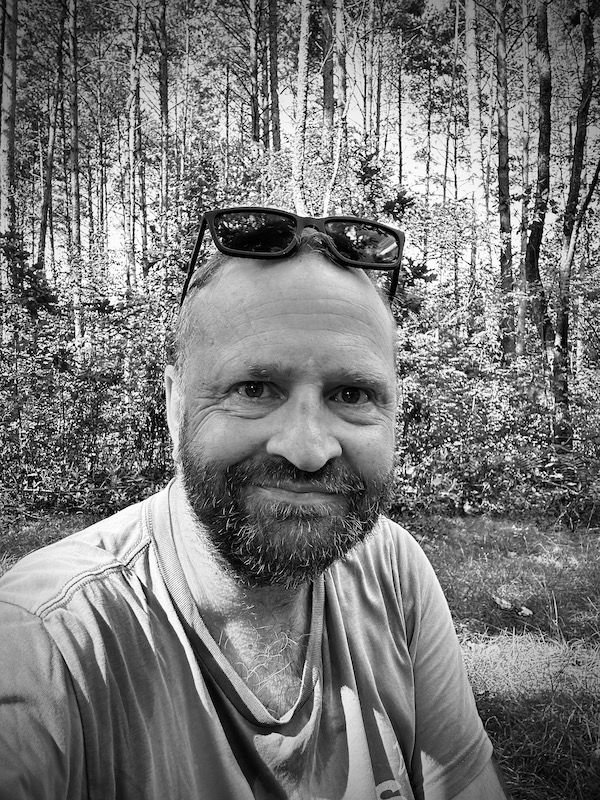There's a moment in every founder's journey when you have to ask yourself a brutally honest question: "Why me? Why am I the person to solve this problem?"
For many months, I’ve wrestled with this question as I developed Phenomenal. Yes, I had lived experience with addiction and recovery. Yes, I had professional training and credentials. But so do many people. What made my approach different? What gave me the unique perspective to create something truly revolutionary in the sobriety space?
The answer came through a process I’ve been working through with my mentor: "The Story of You" - a deep excavation of my own transformation journey that revealed not just what I had overcome, but how I had overcome it, and why that "how" was the missing piece, as I perceived it, in traditional recovery approaches.
Beyond the Surface Story
Most recovery narratives follow a predictable arc: struggle, rock bottom, moment of clarity, getting help, staying sober. It's a powerful story, but it's also somewhat generic. Everyone who's been through recovery has some version of it.
But when I really examined my journey with Anne’s help, not just the what and when, but the how and why - I discovered something fascinating. My path to sobriety hadn't followed the traditional model at all. I hadn't "surrendered" or "admitted powerlessness." Instead, I had gradually reclaimed my agency, rebuilt my identity, and discovered that sobriety wasn't about restriction - it was about expansion.
Turns out, the problem was, I had been trying to fit my experience into conventional recovery language and frameworks. Once I stopped doing that and started telling my actual story, everything changed.
The Power of Personal Archaeology
The "story of you" process involves what I now think of as “personal archaeology” - carefully excavating the layers of your experience to understand not just what happened, but what made the difference. For me, this meant going beyond the surface narrative to explore:
The turning points that weren't dramatic moments - My change happened through small realisations and gradual shifts, not sudden epiphanies. This insight led to Phenomenal's focus on incremental progress and celebrating small wins.
The strategies that actually worked vs. what I thought worked - I realised that my most effective coping mechanisms weren't the ones I'd learned in traditional programs, but creative approaches I'd developed intuitively. This became the foundation for Phenomenal's innovative techniques.
The language that resonated vs. the language that didn't - Traditional recovery vocabulary often made me feel worse, not better. The words that actually motivated me were about growth, possibility, and becoming. This led to a complete metaphorical reframing.
The support that helped vs. what felt hollow - Shame-based approaches pushed me away, while empowerment-based support drew me in. This insight shaped Phenomenal's entire approach to community and coaching.
Discovering My Unique Lens
Through this deep (and frequently emotional) self-examination, I discovered that my recovery had been fundamentally different because I had approached it as a creative problem-solving challenge rather than a medical condition to manage. I had, in effect:
- Experimented with different approaches rather than following a single program
- Adapted techniques to fit my personality and lifestyle
- Celebrated progress rather than focusing on what I was giving up
- Built something new rather than just removing something old
- Engaged my curiosity rather than relying solely on willpower
This wasn't just my personal arbitrary preference - it was a completely different paradigm. And I realised that this paradigm might be exactly what was missing from most other traditional recovery approaches.
From Personal to Universal
The key breakthrough came when I truly understood that my "unconventional" recovery wasn't actually unconventional at all - it was just poorly served by conventional approaches. There are likely thousands of people who would respond better to:
- Creative engagement over rigid adherence
- Positive reinforcement over consequence-based motivation
- Personal empowerment over external authority
- Growth mindset over deficit thinking
- Experiential learning over information-heavy education
My story wasn't unique because I was special - it was unique because I had found a different way through that wasn't being offered by existing programs.
The Revolutionary Realisation
This led to the most important insight of all: traditional recovery programs weren't failing because they were wrong, but because they were incomplete. They served some people very well, but left others without effective options.
My role wasn't to replace what worked for some people - it was to create something for the people who needed a different approach entirely. This realisation freed me from trying to compete with existing programs and allowed me to focus on creating something genuinely innovative.
Building from Authenticity
Once I understood my authentic story and unique perspective, building Phenomenal became much clearer. Every element of the program could be traced back to insights from my own transformation:
The THRIVE System came from mapping the actual process that had worked for me, not the theoretical process I thought should work.
The gamification elements reflected my discovery that making progress visible and celebrating wins had been crucial to maintaining motivation.
The metaphorical reframing emerged from recognising that language had been either a barrier or a bridge in my own journey.
The community approach was based on understanding what kind of support had actually helped me versus what had felt hollow or counterproductive.
The Engagement Factor
Perhaps most importantly, understanding my story helped me understand why traditional approaches often struggle with engagement. They're often built around what helpers think people need, rather than what actually motivates the people seeking help.
My own story revealed that I had been most engaged when I felt:
- Curious rather than ashamed
- Empowered rather than powerless
- Creative rather than compliant
- Celebrated rather than managed
- Understood rather than judged
This became the foundation for Phenomenal's revolutionary approach to engagement.
The Ripple Effect
Understanding my own story hasn’t just help me build a better program - it has helped me understand my role as a guide for others. I wasn't meant to be the expert with all the answers, but the fellow traveller who had found a different path and could help others navigate it.
This shift changed everything about how I show up in the process:
- My vulnerability became a strength rather than something to hide
- My unconventional approach became an asset rather than a liability
- My story became a bridge to others rather than something to overcome
Why This Matters for Others
The "story of you" process isn't just for founders or coaches - it's powerful for anyone seeking change. When you understand your authentic story of transformation (even small ones), you discover:
- What actually works for you versus what you think should work
- Your unique strengths and resources that you might not have recognised
- The conditions that support your growth versus those that hinder it
- Your natural motivation patterns and how to work with them rather than against them
The Revolutionary Result
By starting with my authentic story rather than trying to fit into existing frameworks, Phenomenal became something genuinely different. It's not trying to be a better version of what already exists - it's offering an entirely different way of approaching sobriety.
The program works because it's built on a foundation of authentic understanding rather than theoretical models. It engages people because it speaks to experiences and motivations that are often overlooked by traditional approaches.
Most importantly, it's revolutionary because it emerged from a real story of transformation rather than being designed to fit preconceived notions of how recovery should work.
The Ongoing Journey
Understanding my story was just the beginning. As Phenomenal grows and evolves, I continue to learn from both my ongoing journey and the stories of the people I serve. Each person's unique path adds to my understanding of what's possible when we move beyond one-size-fits-all approaches.
The goal isn't to create another program that works for everyone, but to expand the options available so that more people can find their own authentic path to transformation.
Because ultimately, that's what makes any approach revolutionary - not that it's different for the sake of being different, but that it emerges from a deep understanding of what actually works in the real, messy, beautiful complexity of human change.
Your story of transformation - whatever change you've navigated - contains insights that only you can offer. The question isn't whether your story is dramatic enough or impressive enough. The question is: what did you learn about change that others might need to hear?
What insights from your own journey might help others? I'd love to hear your reflections in the comments below.






